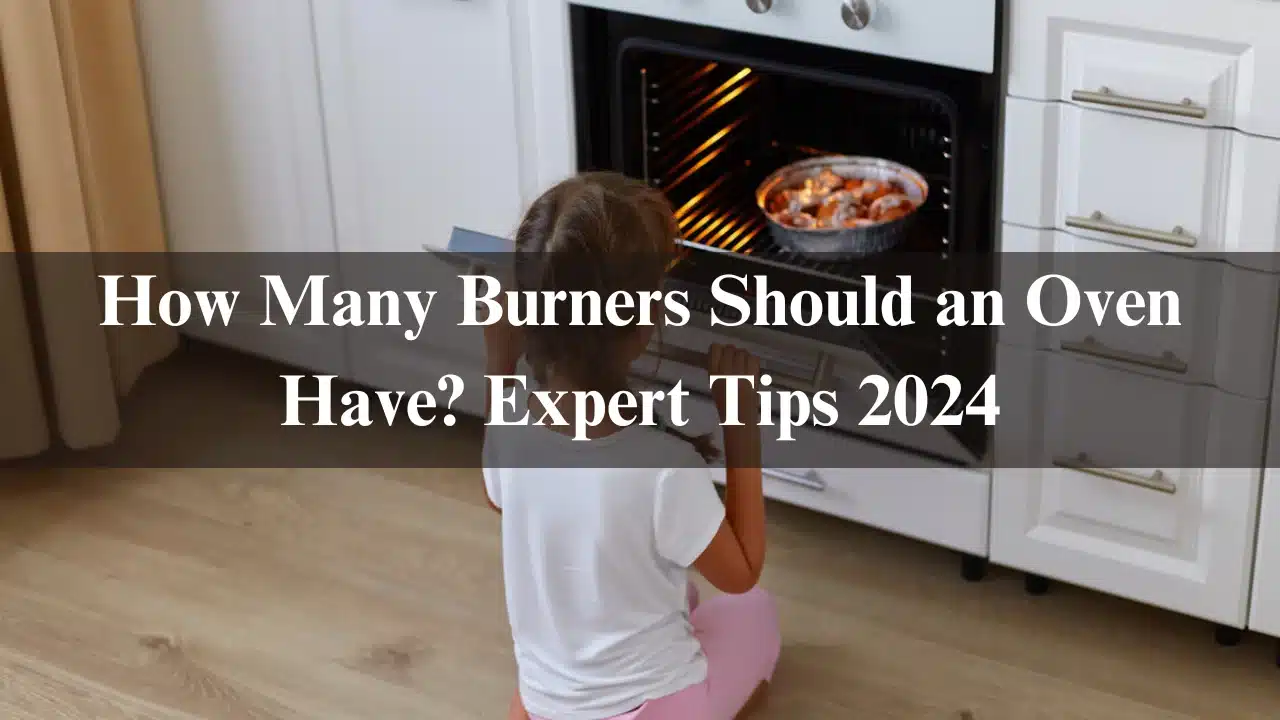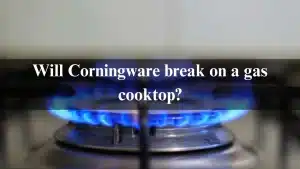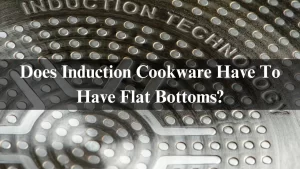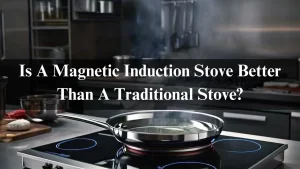When choosing the right stove or oven for your kitchen, one of the most common questions that arise is, “How many burners should an oven have?” The answer to this question depends on various factors, including your cooking style, kitchen space, and household needs.
Understanding the features of an oven, particularly the number of burners, can make a significant difference in your cooking efficiency. A stove with multiple burners allows you to prepare several dishes at once, while a single-burner stove may suit smaller kitchens or those who cook less frequently.
In this article, we will dive into the key aspects of choosing the right number of burners for your oven. From accommodating large meals to fitting into specific kitchen layouts, we’ll explore how to determine the ideal number of burners for your cooking habits and home setup.
Table of Contents
Importance of Choosing the Right Number of Burners
Selecting the right number of burners isn’t just about aesthetics. It directly impacts how effectively you can prepare multiple dishes simultaneously. A suitable number of burners improves cooking speed and allows you to multitask with ease. If you regularly prepare several dishes, having the appropriate number of burners is key.
What Are Oven Burners?
Burners are cooking zones on your stovetop where pots and pans are placed for heating. Burners come in different sizes and heat outputs, with the ability to support various cooking methods like boiling, frying, and simmering. In most ovens, a combination of small, medium, and large burners allows flexibility in cooking different dishes at once.
How Do Burners Work?
Burners provide a controlled heat source to cook food. The two main types are:
- Gas Burners: Gas burners create heat using a flame, offering instant temperature control and responsiveness.
- Electric Burners: Electric burners use coils or smooth ceramic surfaces to generate heat, providing steady cooking temperatures but slower response times.
Both types offer distinct advantages based on cooking style and personal preference.
Cooking Needs and How They Affect Burner Selection?
Your cooking habits should determine the number of burners you need. For instance, if you enjoy preparing elaborate meals with multiple components, more burners will enable you to cook more efficiently. For simpler meals or solo cooking, fewer burners may be sufficient.
Space Considerations
Your kitchen space is a key factor in choosing the right oven. Larger ovens with more burners take up more room, so it’s essential to measure your available space. Smaller kitchens may benefit from a compact model with two or three burners. Always ensure the oven fits comfortably without overcrowding the kitchen.
Family Size and Meal Preparation
The number of burners you need will also depend on your family size and how often you cook. For instance, a family of four may find a four-burner oven ideal for preparing multiple dishes at once. Larger families or those who entertain frequently may need an oven with five or six burners to accommodate larger meals.
Single-Burner Ovens
Single-burner ovens are best for small living spaces or those who rarely cook. These compact units work well for individuals or couples cooking simple meals. However, they limit multitasking and may not be suitable for large or complex meals.
Double-Burner Ovens
Two-burner ovens are ideal for small families or individuals who cook frequently. They offer flexibility while maintaining a compact form. With two burners, you can cook basic meals like pasta or stir-fries without issue. However, they may not accommodate large meals or multiple dishes.
Four-Burner Ovens
Four-burner ovens are the most common in households and provide an excellent balance between functionality and space. They are perfect for families of up to four people and allow for cooking multiple dishes simultaneously. If you cook regularly, a four-burner oven offers versatility and efficiency.
Five or More Burners
Ovens with five or six burners are ideal for those who often cook large meals or entertain guests. These ovens provide ample cooking space and flexibility, allowing you to prepare several dishes at once. However, they require more kitchen space and are generally more expensive.
Pros and Cons of More Burners
Pros:
- Increased Multitasking: More burners mean more cooking options at the same time.
- Better for Entertaining: Perfect for preparing large meals and entertaining guests.
- More Flexibility: Allows for various cooking techniques on separate burners.
Cons:
- More Space Required: Larger ovens take up more space in your kitchen.
- Higher Cost: Multi-burner ovens are more expensive both in purchase and energy consumption.
- Increased Cleaning Effort: More burners mean more parts to clean.
Gas vs. Electric Burners: What’s the Difference?
When deciding on the number of burners, you must also choose between gas and electric burners. Both types have their benefits:

- Gas Burners: Preferred by many chefs for precise temperature control and quick heat adjustments. They heat up fast and offer more control while cooking.
- Electric Burners: Offer consistent heat but are slower to heat and cool down. They are often easier to clean and maintain than gas burners.
Budget and Cost Considerations
Your budget plays a significant role in your choice. Single- and double-burner ovens are generally more affordable, while ovens with more burners tend to be pricier. However, investing in a multi-burner oven may be worth it if you cook frequently or have a larger family. Consider both the upfront cost and long-term energy usage when making your decision.
Future Needs: Planning for Expansion
When choosing the number of burners, it’s essential to think about your future cooking needs. If you plan on expanding your family or hosting larger gatherings, you might want to invest in a stove with more burners. It’s more cost-effective to buy a larger oven now than upgrade later.
Conclusion:
The number of burners you choose depends on your cooking habits, family size, and available space. While a four-burner oven is sufficient for most households, those who cook frequently or entertain often may need an oven with more burners. Consider your needs, budget, and kitchen size to choose the ideal setup.
FAQs
How many burners do I need for a small family?
A four-burner oven is ideal for small families, allowing you to prepare multiple dishes simultaneously.
Are gas or electric burners better?
Gas burners offer faster heat and precise temperature control, while electric burners are easier to clean and maintain.
Can I use a single-burner oven for regular cooking?
Yes, but it limits your ability to cook multiple dishes at once. It’s best for simple meals or small households.
Is a multi-burner oven worth the cost?
If you cook frequently or host gatherings, a multi-burner oven can improve efficiency and make meal preparation easier.
What’s the best burner setup for a small kitchen?
A two or four-burner oven works well for small kitchens, providing functionality without taking up too much space.




